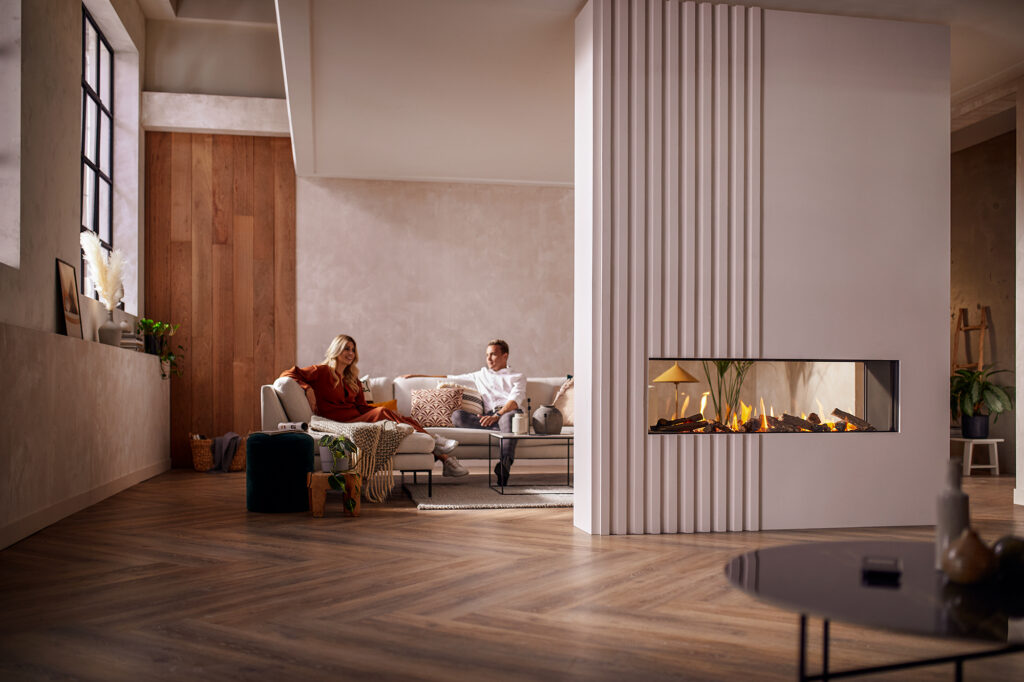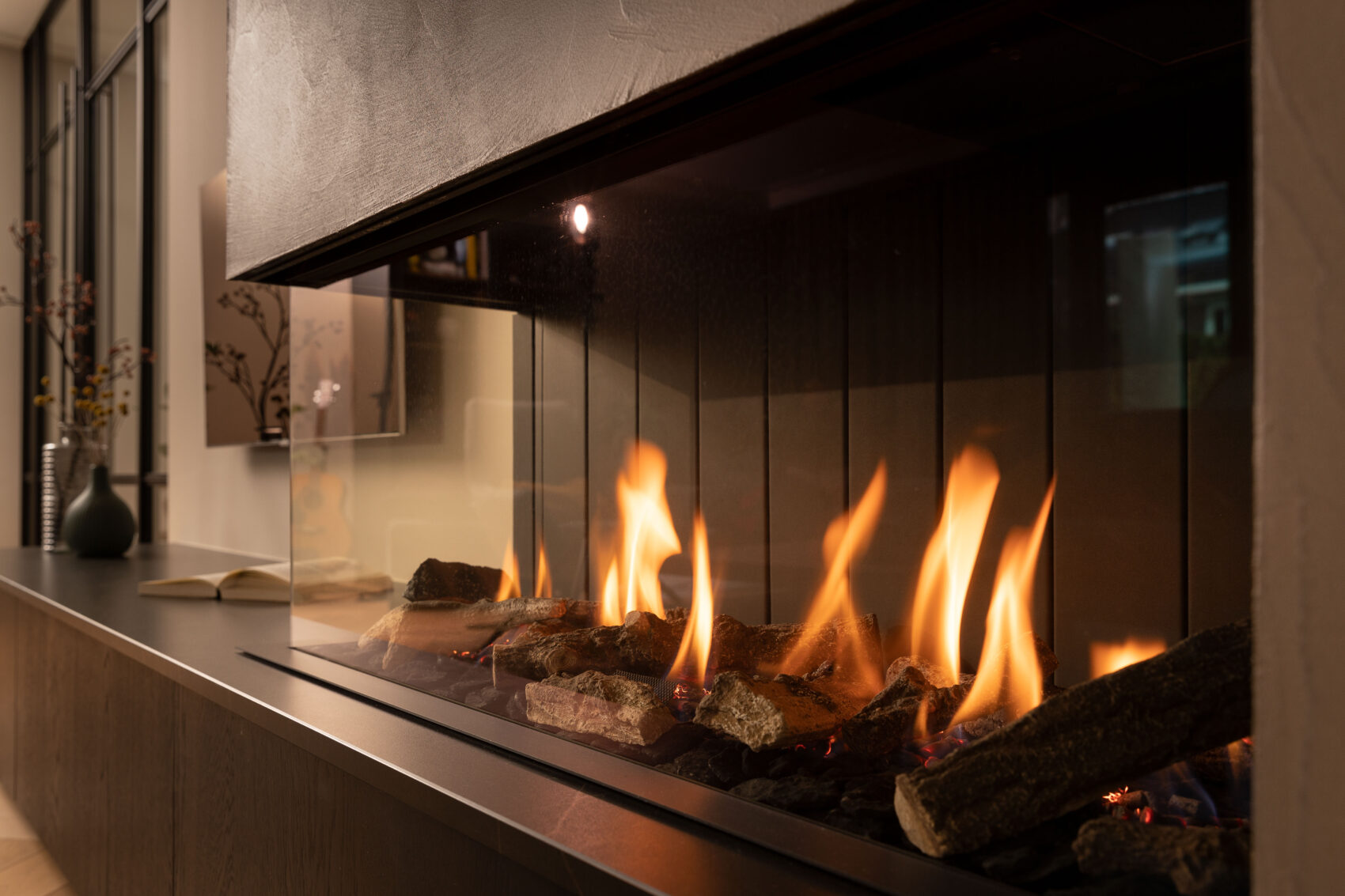When it comes to choosing a fireplace, the decision often boils down to three main fuel types: wood, pellet, and gas. Each of these options has its own set of advantages and drawbacks, but for those seeking the most economical and convenient choice, gas fireplaces stand out as the clear winner. In this post, we will delve into the features, costs, and conveniences of each type, illustrating why gas fireplaces are the better option for modern homeowners.

Wood Fireplaces
There are a number of good reasons to buy a wood-burning fireplace. We like to mention the most important ones.
The charm of tradition
Wood fireplaces are cherished for their traditional appeal. The crackling sound, the smell of burning wood, and the dance of natural flames create an atmosphere that is both cozy and nostalgic. For many, these sensory experiences are irreplaceable.
Cost considerations
However, the romanticism of wood fireplaces comes with significant costs. Wood can be expensive, especially if you do not have a free or low-cost source. Additionally, installation of a wood fireplace can be more expensive due to extra fire prevention.
Maintenance and convenience
Wood fireplaces are subject to relatively more maintenance. Regular cleaning of ash, soot, and creosote build-up in the chimney is essential to prevent fire hazards. Storing, chopping, and drying wood also demands time and space, making wood fireplaces less convenient for the average homeowner.
Pellet fireplaces
There is also the pellet stove. This stove burns pellets, made from compressed sawdust and wood chips. There are plenty of reasons to choose this stove too!
Efficiency and control
Pellet fireplaces offer a more efficient and environmentally friendly option compared to wood. They use compressed wood or biomass pellets, which burn cleaner and produce less ash. Many pellet stoves come with automatic feed systems that regulate the fuel supply, ensuring a consistent burn and making them easier to control.
Cost factors
While pellets might be cheaper than wood on a heat output basis, the initial cost of pellet stoves is higher. Additionally, the price of pellets can fluctuate based on availability and demand, potentially impacting the overall cost-effectiveness.
Maintenance needs
Pellet fireplaces also require regular maintenance. The ash needs to be removed frequently, and the stove itself must be cleaned to maintain efficiency. While less labor-intensive than wood fireplaces, they still demand a considerable amount of upkeep compared to gas options.
Gas fireplaces
The gas fireplace is also a super popular appliance, and that’s easy to explain. We like to go through some of the reasons.
Unmatched convenience
Gas fireplaces offer unparalleled convenience. With just the push of a button, you can have instant heat and ambiance without the hassle of tending to a fire. Modern gas fireplaces come with remote controls and programmable thermostats, allowing you to set and maintain your desired temperature effortlessly.
Cost efficiency
In terms of operational cost, gas fireplaces can be cheaper than their wood and pellet counterparts. Natural gas is generally more affordable in price compared to wood and pellets. Moreover, gas fireplaces are highly efficient, converting up to 80% of the fuel into usable heat, which translates to lower energy bills.
Low maintenance
Gas fireplaces require minimal maintenance. There is no need for chimney cleaning, as they vent directly outside or use ventless technology. Annual inspections and occasional cleanings are typically all that is needed to keep a gas fireplace running smoothly. This low maintenance aspect saves both time and money, making gas fireplaces a practical choice for busy homeowners looking for convenience.

Conclusion
While wood and pellet fireplaces have their own unique charms and benefits, gas fireplaces surpass them in both cost-effectiveness and convenience. The initial investment in a gas fireplace is often comparable to a wood or pellet fireplace, but the ongoing costs of fuel and maintenance are significantly reduced. For those who prioritize efficiency, ease of use, and economic value, gas fireplaces are the superior choice. They provide instant warmth, require minimal upkeep, and ultimately offer a more comfortable and cost-effective solution for heating your home.
By comparing the features, costs, and maintenance needs, it becomes clear that gas fireplaces provide the best combination of affordability, efficiency, and convenience.





